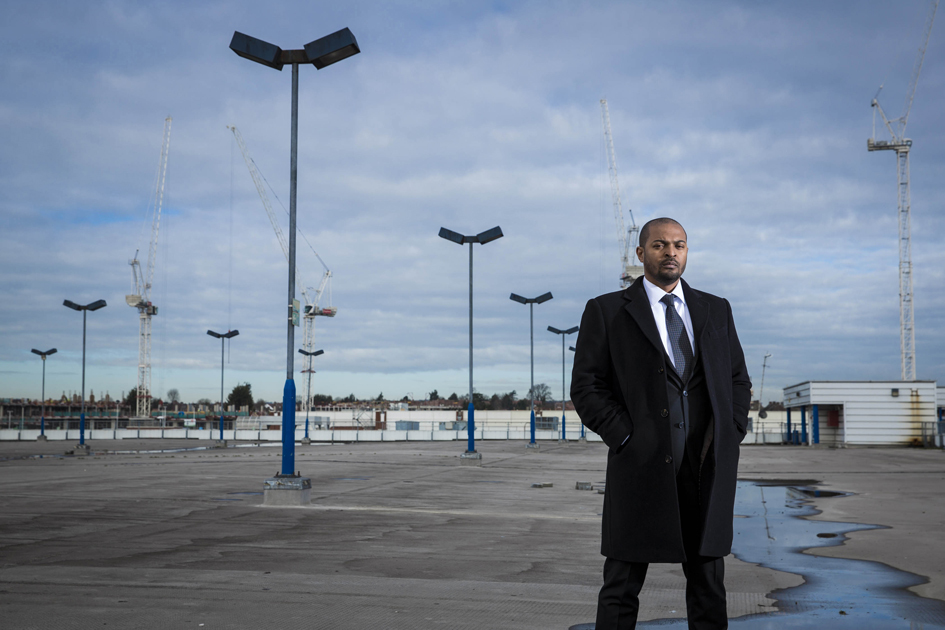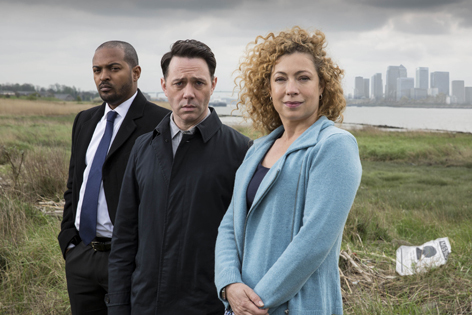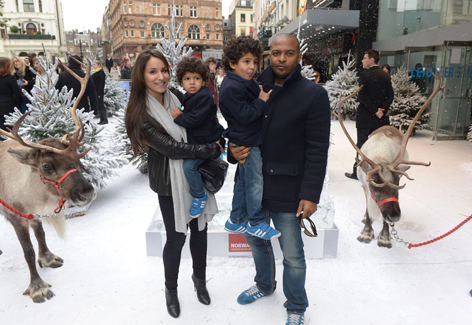Taking time out from writing, producing and directing, Noel Clarke talks about the unbelievable statistics that inspired his new crime thriller
Around 300,000 people go missing in the UK every year.
Not many people are aware of that statistic, but Noel Clarke was one of the few.
“I wanted to do a film about it,” says the 38-year-old actor, director and producer who earned the Bafta Rising Star award in 2009. “The numbers involved are astounding. It should be on the news every day, but it’s not. You only hear about four or five [people] and I think that’s as interesting as the actual stats. Why do we hear about the ones we do? What makes them more important than the others? I think the show could explore that later down the line.”
He’s referring to Chasing Shadows, a new four-part drama set in a missing persons field unit. Based on the fact criminologists believe between two and 15 serial killers are currently at large in Britain, it transpires the disappearances are down to serial killers who prey on the vulnerable.
“People are always fascinated with what they cannot understand. They want to know what’s inside the mind of a killer,” he notes. “A film about the good kid who becomes the professor isn’t interesting, but killers are.”
Clarke stars as police detective Carl Prior, a man who’s “worked very hard and probably been promoted faster than normal for his age. I think it’s testament to the character, as he does everything by the book, reads up on what he needs to do and gets the job done”.
Alongside him is DS Sean Stone, played by The League Of Gentleman’s Reece Shearsmith.
Intense and socially awkward, Sean believes it’s more important to be truthful than polite. And with an inability to lie, he creates tension in the work place.
“Carl’s not understanding at first, but he’s aware something’s going on and he’s able to tolerate Sean,” explains Clarke. “And as the series goes on, he begins to like him.”
Then there’s civilian analyst Ruth Hattersley, played by Alex Kingston, who, like Clarke has appeared in Doctor Who, though they never crossed paths on that show. “I know there’s a buzz of excitement from Doctor Who fans knowing we’re both in the series,” laughs Clarke, who thinks of Carl as “the glue” that brings them together.
“It’s a new unit by the end of the show and they’re definitely three characters you’d like to see more of.”
The writer Rob Williams had no interest in creating a drama about the “super-intelligent serial killers” so often depicted in movies. “The truth is rather more banal and therefore doubly sinister. These so-called monsters are usually fantastically ordinary,” he’s said, and Clarke agrees.
“We all wanted to make sure it didn’t fall into any of those cliches.” And he includes his own character. In less experienced hands, Prior could have the potential to be the familiar cynical detective, who, as Clarke puts it, “every week says, ‘You’re wrong, you’re wrong’ and then 40 pages later goes, ‘Oh, you guys are right.’ So we really worked on the character and how we’d make him smarter.
Even if he knows the person has done it, he goes against Stone and Hattersley and says, ‘Look, I need evidence to take this guy down because he needs to go by the book.”
Prior’s drive stems from his desire to secure a future for himself and his family, something Clarke can relate to as a dad of two boys, aged six and three.
“You make decisions based on them. It’s funny, because I’d always organise holidays around work, but I recently booked a holiday and then got a job offer two days after. I considered it for a week and then thought it clashed too much.
The kids need a holiday before they go back to school and the family needs a break. In the past, that’s not something I’d do. The holiday would move. But getting older and being a dad, you realise how important all the family stuff is.”
While the youngest is unaware of his dad’s profession, his eldest son is starting to ask why “people always want to take pictures of daddy”.
“He did say, ‘Do they take pictures of you because they like movies?’ so he must be getting it, because I haven’t explained too much about what I do.”
London-born and bred, Clarke studied media at university before taking acting classes at the capital’s Actors Centre. He appeared in the TV series Metrosexuality in 1999, made pop-up appearances in The Bill, Judge John Deed and Holby City, and starred in the revived Auf Wiedersehen, Pet, before the release of Kidulthood, which he wrote and starred in.
The movie, about a group of teens in London, was met with acclaim and led to the sequel Adulthood, which Clarke also directed. He’s gone on to write a further four movies, helm two, and produce numerous projects, including the upcoming We Are Monster and Legacy.
Despite the continuing workload, Clarke believes “it’s quieter now and more chilled out”.
Unlike many actors, he has little interest in upping sticks and moving to the States in pursuit of more work.
“It’s not something I’m chasing or have ever wanted to. I love creating and I love British films. There’s no better feeling than pounding the pavement for a year and a half, creating something with your team, even if you haven’t directed, but produced it,” says Clarke.
“And I feel, in years to come, I’ll be able to [proudly] say, ‘I did that’, knowing that certain things couldn’t or wouldn’t have happened without me.”
EXTRA TIME: MISSING PEOPLE – THE SAD FACTS
Tie A Ribbon charity, who work to reunite missing people and their loved ones, report that around 140,000 children run away from home in the UK every year.
In addition to that, every year roughly 250,000 adults in the UK go missing.
Among adults, those aged between 24-30 years old were the most likely to be reported missing, followed by adults aged 18-23 years old, says Missing People.
Shelter, the housing and homelessness charity, report that a quarter of young people who run away end up sleeping rough.
For more information, help or support, visit missingpersons.police.uk, www.missingpeople.org.uk, www.tie-a-ribbon.co.uk and www.shelter.org.uk


